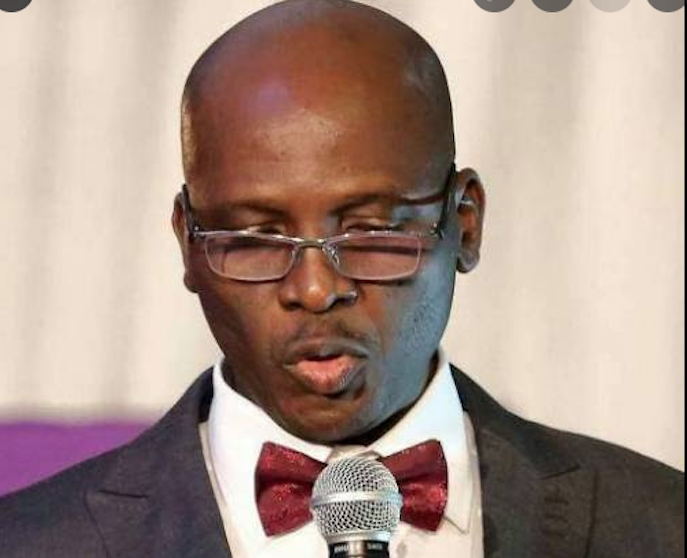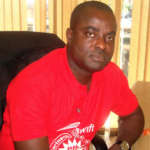femi Akintunde-Johnson
It must take an extraordinary kind of calmness – bordering on either detachment or delusion – to abandon a country in severe distress for an extended “official visit” to a Caribbean island no one imagined featured on Nigeria’s foreign policy radar. Yet, that is precisely the bemusing script that has just played out before our eyes. As one crouched over the writing desk for this piece, President Bola Ahmed Tinubu, democratically elected to preside over the affairs of over 200 million highly expectant citizens, has chosen this moment – of all moments – to lavish diplomatic energy and national prestige on St. Lucia.
Yes, you heard right – St. Lucia! A picturesque island of just over 180,000 people, known more for beach weddings, banana plantations, and honeymoon brochures than for multilateral summits or global policy shaping. And the timing couldn’t be more appalling. At home, Nigeria groans under the combined weight of hyperinflation, insecurity, collapsing education infrastructure, and an alarming disconnect between governance and the governed. Yet, our leader finds it strategic to “exchange ideas” with a nation whose GDP is barely one-tenth the combined wealth of Lagos Island.
One must ask: what exactly is the attraction? What does Nigeria stand to gain? Or more accurately, what does he stand to gain?
Speculations, of course, are rife. Social media investigators and diaspora gossip circles are already buzzing about an old friend of the president – a certain permanent representative of St. Lucia to the United Nations – said to have been a close associate from those blurry Chicago days. If that’s true, then one begins to fear that statecraft in this government may not be immune from the contagious pull of private affiliations and soft landings. But we won’t dwell on unconfirmed suspicions. There are more pressing absurdities to unpack.
Take a moment and reflect on the ghastly irony: the President of Nigeria pledges, reportedly, to help strengthen the democratic and educational institutions of a small island state – while primary school pupils under his very nose in the Federal Capital Territory have been out of school for over nine weeks due to unpaid salaries and unresolved industrial disputes. A bitterly ironic scene where the headmaster’s own house is in tatters, yet he flies off to help paint someone else’s classroom in another continent.
This is not statesmanship. It is performative diplomacy at best, and wilful negligence at worst.
Even if we try very hard to stretch the limits of strategic imagination, one struggles to pin down the value proposition of a prolonged stay in St. Lucia. Is there a United Nations General Assembly holding there? No. A Commonwealth Heads of Government Meeting? Not at all. Any bilateral trade deal worth shouting about? None that the Ministry of Foreign Affairs has deigned to publish. So, pray tell: What is the merit – political, economic, or strategic – of this tropical excursion?
We must now interrogate the moral clarity (or lack thereof) of a leadership that repeatedly behaves like a reluctant landlord in its own house. Nigeria today is a mess of emergencies begging for executive attention: food prices that defy gravity, a currency so anaemic it needs crutches, insecurity that stalks our highways and homes like a persistent ghost, and a public service structure rusting from decades of corruption and indifference. These are not the kinds of issues one can manage from beachside briefings or candlelit dinners with foreign diplomats.
What has become painfully clear is that successive Nigerian leaders – and Tinubu is fast confirming this pattern – often appear more interested in the perks and privileges of the office than in its suffocating responsibilities. Governance here has become a seasonal performance, rich in costume changes but poor in plot development. How else do you explain a situation where an “official visit” becomes an impromptu vacation in the middle of national turbulence?
Across more developed and serious democracies, a leader’s extended absence is often occasioned by unavoidable global commitments: summits, war diplomacy, economic forums, or urgent climate talks. Even then, such trips are brisk, focused, and always tethered to tangible national interests. But here, we make a public spectacle of unseriousness. While Nigerians at home occasionally queue for hours at petrol stations, dodge bandits on the highways, and watch food prices climb higher than Mount Patti (in Lokoja, Kogi State), our number one citizen is possibly sipping fruit cocktails with the Lucian governor-general, plotting how to teach democracy to a country that has enjoyed peaceful transfers of power since our oil boom days.
The tragedy is not just in the action itself, but in the disturbing normalisation of such leadership recklessness. A nation that has become so accustomed to impunity now shrugs when its president prioritises photo-ops abroad over fire-fighting at home. That resignation, that dangerous coping mechanism, is what permits these cycles of governance failure to persist.
And so, the citizens wait. They wait for their voices to be heard over the din of sycophancy. They wait for government policies that do not crush the weak while enriching the elite. They wait for a public education system that works, for hospitals that don’t depend on charity, for roads that don’t consume human lives in pothole-induced horror. Above all, they wait for a leadership that sees public service not as a retirement plan, but as an obligation to elevate the standard of living for all Nigerians.
Perhaps that wait is foolish. Perhaps it is hopeful. But what it cannot be is eternal. At some point, someone must say – loudly and repeatedly – that the emperor is naked. That a government which cannot prioritise its own people has lost the moral right to lecture anyone else on development. That a president whose ministers sleep soundly while millions cannot eat or learn is not leading – he is loitering.
Let it be known, then, that we object. Not with vulgarity or venom, but with the solemn indignation of citizens who know when they’re being played. A St. Lucia jaunt might seem like a footnote in a long story of misrule, but it is telling. It tells of how far removed the leadership class is from the suffering masses. It tells of a tone-deafness that no spin doctor can disguise. And it tells of a man who, perhaps unknowingly, is dancing ever so confidently towards the graveyard of legacies.
History, after all, has a cruel sense of humour. It remembers. Even when the beach breeze dies down and the cameras turn off, it remembers who fled the burning house to admire another man’s wallpaper. And when the final account is written, it may yet say: He had the chance to govern a great people. Instead, he chose a postcard.
















Leave a comment